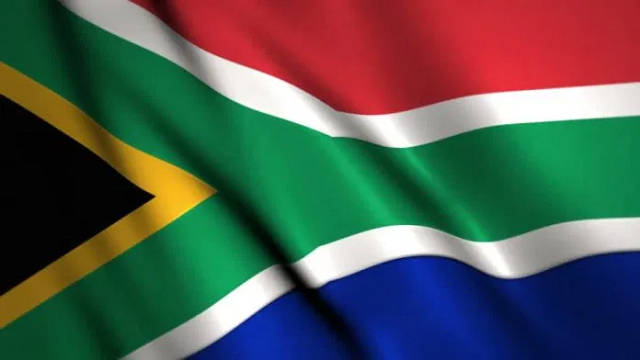Sports are a significant part of South African culture, and it’s not just about the excitement of the games. From rugby, cricket, and soccer to athletics, South Africans are passionate about their sports. The country has a rich history of sports and has produced some of the world’s most exceptional athletes.
The popularity of sports in South Africa is undoubtedly worth exploring, not just because it’s a fascinating aspect of the country’s culture, but also because it can shed light on some of the broader societal and economic issues facing the country. By examining the factors behind sports popularity in South Africa, we can gain a deeper understanding of what drives this passion and explore the different ways in which sports impact the country’s economy and society. Ultimately, understanding the popularity of sports in South Africa can provide valuable insights into the country’s identity, culture, and values.
Historical Context
Sports have played a crucial role in South African history, particularly during the apartheid and post-apartheid eras. During apartheid, sports were used as a tool of racial segregation, with separate leagues and competitions for white and non-white athletes. This exclusionary policy was most notable in cricket and rugby, where the South African government banned black players from playing on the national teams. However, sports also became a site of resistance against apartheid, with many athletes and sports teams using their platform to fight against the racist system.
The role of sports in the fight against apartheid became particularly evident in 1995 when South Africa hosted the Rugby World Cup. The Springboks, South Africa’s national rugby team, had been long associated with the apartheid regime, and many black South Africans saw the team as a symbol of oppression. However, the newly elected President Nelson Mandela saw an opportunity to use the tournament as a way to unite the country. He famously donned a Springbok jersey and attended the final, where he presented the trophy to the victorious South African team. This moment is seen as a pivotal moment in South African history, where sports became a tool for uniting the country and breaking down racial barriers.
In the post-apartheid era, sports continued to play a significant role in promoting unity and reconciliation. The newly democratic South Africa made a concerted effort to integrate sports and remove the vestiges of apartheid-era segregation. The country also became a more active participant in the international sports community, with South African teams competing at the highest levels of cricket, rugby, soccer, and athletics. As a result, sports have become a significant part of South African identity, with fans of all races and backgrounds passionately supporting their teams.
Passion and Identity
Sports have become an integral part of South African identity, with passionate fans supporting their favorite teams and athletes. National and local teams are revered, and sporting events provide a unifying force for people of all races and backgrounds. For many South Africans, sports offer an escape from the challenges of everyday life, providing a sense of pride and unity that transcends societal divisions.
One of the most significant examples of how sports have brought people together in South Africa is the 1995 Rugby World Cup. As mentioned earlier, this tournament played a crucial role in promoting national unity and reconciliation after the end of apartheid. The event saw people of all races and backgrounds coming together to cheer on the Springboks, with many black South Africans putting aside their historical animosity towards the team to support their country. The atmosphere at the games was electric, with fans united in their love of the game and their country.
Sports also play a role in shaping local identity in South Africa, with teams representing different regions and cities. For example, soccer is a popular sport in many townships and informal settlements, and local teams often have a significant following. These teams provide a sense of community and identity for the people who live in these areas, with games bringing together neighbors and friends to cheer on their local team.
In addition to promoting national and local identity, sports also play a role in promoting individual identity. Many athletes are seen as role models, inspiring young people to pursue their dreams and strive for excellence. In this way, sports have become a powerful tool for promoting self-esteem and personal growth, particularly in disadvantaged communities where opportunities are often limited.
Overall, sports have become a critical part of South African identity, uniting people from all walks of life and providing a sense of pride and unity that transcends societal divisions.
Gambling
Gambling has become increasingly intertwined with sports in South Africa, with many fans placing bets on matches and tournaments. The rise of sports betting sites and online gambling platforms has made it easier than ever for people to gamble on their favorite sports, with a wide range of options and markets available.
Sports betting platforms have become particularly popular in South Africa, with many fans using them to place bets on soccer, rugby, and cricket matches. These sites often offer a wide range of betting options, including pre-match and in-play betting, as well as different types of bets such as accumulators and live betting.
While gambling can be a fun and exciting pastime for some, it can also have negative effects on both fans and athletes. For fans, gambling can become addictive, leading to financial problems and other negative consequences. In some cases, fans may even develop a problem gambling disorder, which can have a significant impact on their mental health and well-being.
For athletes, gambling can also be a concern, particularly when it comes to match-fixing and corruption. There have been several instances of match-fixing and other forms of corruption in South African sports, with athletes and officials being implicated in these scandals. These issues can have a significant impact on the integrity of sports and the trust that fans have in the outcomes of matches.
In response to these concerns, the South African government has taken steps to regulate sports betting and gambling more broadly. The National Gambling Act of 2004 provides a framework for the regulation of gambling in South Africa, including sports betting. This legislation has helped to ensure that gambling is conducted in a fair and transparent manner, while also protecting vulnerable individuals from the negative effects of problem gambling.
Overall, while sports betting platforms and gambling can provide a fun and exciting way to engage with sports, it is important to be mindful of the potential negative effects and to gamble responsibly. It is also crucial for the government and sports organizations to take steps to ensure that gambling and sports remain separate and to address any issues of corruption or match-fixing that may arise.
Economic Factors
Sports have a significant economic impact in South Africa, contributing to job creation and tourism revenue. The sports industry in South Africa is a multi-billion dollar industry, with many people employed in various roles, including athletes, coaches, administrators, and support staff.
One of the most significant economic impacts of sports in South Africa was the 2010 FIFA World Cup, which was hosted by the country. The tournament brought in an estimated $3.6 billion in revenue and created over 130,000 jobs. The event also had a significant impact on tourism, with many visitors coming to South Africa to attend the tournament and explore the country. The World Cup helped to showcase South Africa as a tourist destination, and the country has seen continued growth in the tourism sector since the event.
In addition to the World Cup, sports events and teams in South Africa generate significant economic activity. Rugby and cricket are both popular sports in South Africa, with the national teams playing in international competitions and attracting fans from around the world. The domestic soccer league, the Premier Soccer League, is also popular, with many fans attending matches and supporting their favorite teams.
Sports infrastructure also plays a role in the economy, with many facilities and venues generating revenue through events and rentals. For example, the Moses Mabhida Stadium in Durban, which was built for the 2010 World Cup, has hosted a variety of events, including soccer matches, concerts, and conferences.
Overall, the economic impact of sports in South Africa is significant, with the industry contributing to job creation and tourism revenue. While events like the 2010 FIFA World Cup have had a significant impact, sports events and teams more broadly continue to generate economic activity and support job growth in the country.
Conclusion
In conclusion, the popularity of sports in South Africa is a complex phenomenon that is influenced by a variety of factors. While passion for sports is undoubtedly a significant factor, there are also economic and social factors that contribute to the country’s love of sports.
Historically, sports played a critical role in promoting unity and breaking down racial barriers during apartheid and post-apartheid eras. Today, sports have become an integral part of South African identity, with fans supporting national and local teams with passion and pride.
Economically, sports generate significant revenue and provide job opportunities in a variety of roles, from athletes to support staff and infrastructure development. The 2010 FIFA World Cup is a prime example of how sports events can boost a country’s economy, with South Africa experiencing a significant economic impact from the tournament.
While gambling has become intertwined with sports in South Africa, it is crucial to be mindful of the potential negative effects, including addiction and match-fixing. The government and sports organizations have taken steps to regulate gambling and ensure that sports remain free from corruption.
In conclusion, the popularity of sports in South Africa is driven by a variety of factors, including passion, economic impact, and social significance. Understanding these factors can provide valuable insights into the country’s culture and identity and can help to promote the positive aspects of sports while addressing any potential negative consequences.













